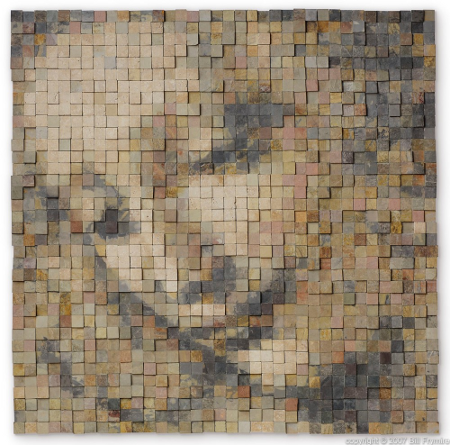ICH RUF ZU DIR, HERR JESU CHRIST, BWV 177
I call to You, Lord Jesus Christ
Ich ruf zu dir, Herr Jesu Christ (I call to You, Lord Jesus Christ), BWV 177, is a church cantata by Johann Sebastian Bach. He composed the chorale cantata in Leipzig for the fourth Sunday after Trinity and first performed it on 6 July 1732. The cantata text is formed by the unchanged five stanzas of Johann Agricola's hymn.
Bach composed the cantata in Leipzig as late as 1732 in order to complete his second annual cycle of chorale cantatas of 1724/25, which lacked a cantata for the Fourth Sunday after Trinity because that Sunday had been the Feast of Visitation in 1725, celebrated then by Meine Seel erhebt den Herren, BWV 10.
THE VISITATION
The Visitation is the visit of Mary with Elizabeth as recorded in the Gospel of Luke, Luke 1:39–56. It is also the name of a Christian feast day commemorating this visit, celebrated on 31 May in the West (2 July in calendars of the 1263–1969 period, and in the modern regional calendar of Germany as well as the Anglican Communion) and 30 March among Eastern Christians.
Mary visits her relative Elizabeth; they are both pregnant. Mary is pregnant with Jesus and Elizabeth is pregnant with John the Baptist. Mary left Nazareth immediately after the Annunciation and went "into the hill country...into a city of Judah" (Luke 1:39) to attend her cousin Elizabeth. There are several possibilities as to exactly which city this was, including Hebron, south of Jerusalem, and Ein Karem. The journey was about 100 miles and Elizabeth was in the sixth month before Mary came (Luke 1:36). Mary stayed three months, and most scholars hold she stayed for the birth of John. Joseph probably accompanied Mary to Judah then returned to Nazareth, and came again after three months to take his wife home. The apparition of the angel, mentioned in Matthew 1:19-25, may have taken place then to end the tormenting doubts of Joseph regarding Mary's maternity.
In Catholicism, it is held that the purpose of this visit was to bring divine grace to both Elizabeth and her unborn child. Even though he was still in his mother's womb, John became aware of the presence of Christ, and leapt for joy as he was cleansed from original sin and filled with divine grace. Elizabeth also responded and recognised the presence of Jesus, thus Mary exercised her function as mediatrix between God and man for the first time.
“And she [Elizabeth] spoke out with a loud voice, and said, Blessed [art] thou among women, and blessed [is] the fruit of thy womb. And whence [is] this to me, that the mother of my Lord should come to me? For, lo, as soon as the voice of thy salutation sounded in mine ears, the babe leaped in my womb for joy. And blessed [is] she that believed: for there shall be a performance of those things which were told her from the Lord. (Luke 1:42–45)”
It is also at this point, in response to Elizabeth's remark, that Mary proclaims the Magnificat (My soul doth magnify the Lord), Luke 1:46–55, for which reason this canticle had traditionally been reserved for this feast day.
In the Latin Rite of the Catholic Church, the Visitation is the second Joyful Mystery of the Rosary.
~~~~~~~~~~
Luke 1:39-45
Now at this time Mary arose and went in a hurry to the hill country, to a city of Judah, and entered the house of Zacharias and greeted Elizabeth. When Elizabeth heard Mary’s greeting, the baby leaped in her womb; and Elizabeth was filled with the Holy Spirit. And she cried out with a loud voice and said, “Blessed are you among women, and blessed is the fruit of your womb! And how has it happened to me, that the mother of my Lord would come to me? For behold, when the sound of your greeting reached my ears, the baby leaped in my womb for joy. And blessed is she who believed that there would be a fulfillment of what had been spoken to her by the Lord.”
And Mary said:
Luke 1:46-56
“My soul exalts the Lord, and my spirit has rejoiced in God my Savior.
“For He has had regard for the humble state of His bondslave;
For behold, from this time on all generations will count me blessed.
“For the Mighty One has done great things for me; and holy is His name.
“And His mercy is upon generation after generation toward those who fear Him.
“He has done mighty deeds with His arm;
He has scattered those who were proud in the thoughts of their heart.
“He has brought down rulers from their thrones, and has exalted those who were humble.
“He has filled the hungry with good things; and sent away the rich empty-handed.
“He has given help to Israel His servant,
In remembrance of His mercy,
As He spoke to our fathers, to Abraham and his descendants forever.”
And Mary stayed with her about three months, and then returned to her home.
